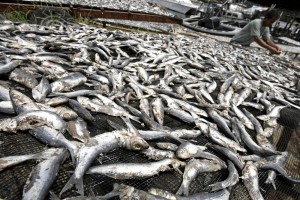TIGBAUAN, Iloilo—Small fisherfolk organizations from 15 countries deplore the massive marginalization of small-scale fishing and are calling for the overhaul of international and national policies on fishing.
Fisheries programs have increased production worldwide but at the expense of small fishermen, said participants at the International Conference on Fisheries and Globalization at the Southeast Asian Fisheries Development Center here.
Antonio Tujan Jr., cochair of the People’s Coalition on Food Sovereignty, one of the organizers of the conference, said fisheries production, including in Philippines, has grown rapidly but has impoverished the small fishermen.
“It is ironic that the most involved is the least to benefit,” Tujan said at the opening on Wednesday of the three-day meeting.
Globalization has created more problems than solutions for small fisherfolk, said Ravadee Prasertcharoensuk, director of the Thailand-based Sustainable Development Foundation.
Mamadou Thione, of the National Fishers Association in Senegal, said the economic and political programs pushed under globalization have been harmful to the small fisherman because the policymaking has been “top-down” and has not involved those at the grassroots.
“The push for commercial aquaculture as a response to the increasing demand of developed countries has resulted in the promotion of unsustainable practices which threatens the food security of developing countries,” according to a paper prepared by the Panay-based Fisheries and Marine Environment Research Institute Inc. (FMERI).
It said the push for unsustainable aquaculture also contributes to overfishing and environmental degradation.
“There is a need for a shift from an export-driven aquaculture industry to one which prioritizes food sovereignty and promotes the
rights of small-scale fisherfolk,” the FMERI paper said.
Fernando Hicap, chair of the Pambansang Lakas ng Kilusang Mamamalakaya ng Pilipinas (Pamalakaya), said this problem has been highlighted by the continued drop in the average daily catch of small fishermen from 10 or more kilograms several years ago to two to three kilograms today.
He said small-scale fishing has been marginalized because of corporate fishponds, fish cages and foreign-owned or joint-venture commercial fishing.
Chandrika Sharma of the India-based International Collective in Support of Fisherworkers said the conference was timely because of the growing need to address the common problems of small fishermen.



